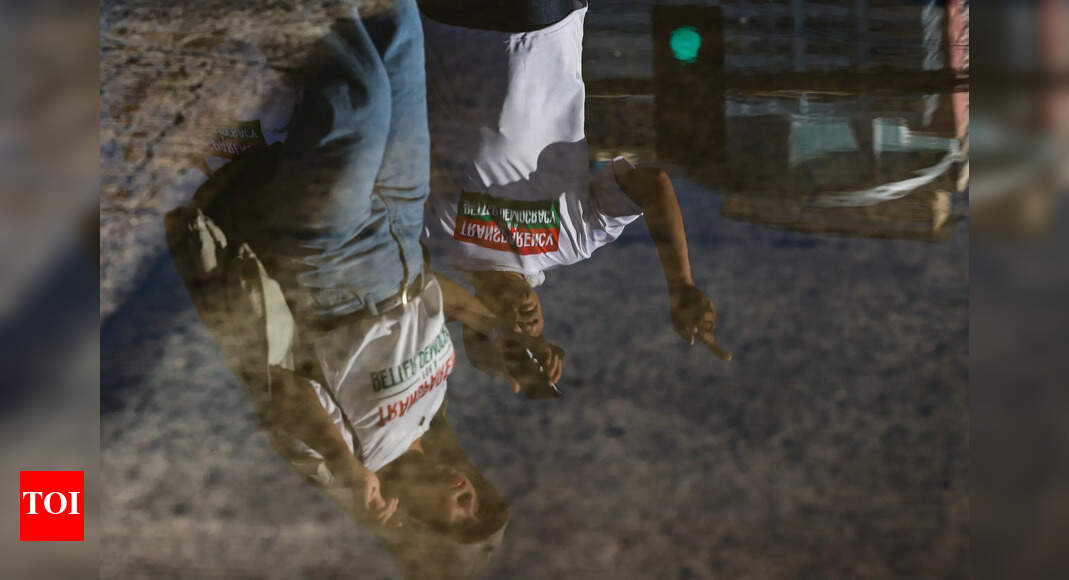The Philippine capital, Manila, recently became the focal point of widespread public discontent as tens of thousands converged for a three-day anti-corruption rally. Organized primarily by the influential Iglesia Ni Cristo religious group, the protest aimed to demand accountability for a pervasive flood-control corruption scandal that has ensnared high-ranking government officials and members of Congress.
This massive demonstration underscores the deep-seated public outrage over allegations of widespread malpractice within the nation's vital flood-control infrastructure projects. The Philippines, one of the world's most typhoon-prone countries, has seen a series of protests in recent months following revelations that numerous flood defense initiatives across the archipelago were either substandard, incomplete, or entirely non-existent.
Allegations of Systemic Graft
Testimonies before the Senate and a dedicated fact-finding commission have brought to light a scheme involving government engineers, public works officials, and construction company executives. Witnesses under oath have detailed how members of Congress and officials from the Department of Public Works and Highways allegedly accepted kickbacks from construction firms. These illicit payments reportedly facilitated the awarding of lucrative contracts and helped companies evade proper scrutiny. While many of the implicated officials deny these grave accusations, the evidence continues to mount.
A Nation United in Protest
Sunday saw an estimated 130,000 members of Iglesia Ni Cristo, identifiable by their white attire and anti-corruption placards, gather at Manila's historic Rizal Park. Simultaneously, other groups prepared for separate demonstrations at the iconic "People Power" monument in suburban Quezon City. The sheer scale of these protests is significant, especially considering Iglesia Ni Cristo's reputation as a powerful voting bloc, actively courted by political candidates during election cycles.
Authorities responded by placing police and military forces on high alert, deploying thousands of personnel to ensure the rallies remained peaceful. This proactive measure follows a recent September demonstration where a few hundred protesters clashed with policemen near the presidential palace, resulting in over 100 injured officers and criminal charges against 97 individuals. The presidential palace itself was under strict security lockdown, with major access roads barricaded by anti-riot police forces, cargo containers and barbed wires. Despite past incidents, law enforcement was instructed to exercise "maximum tolerance" during the weekend's events.
The President's Response and Political Fallout
The timing of the scandal is particularly sensitive for the Philippines, a country frequently devastated by deadly typhoons, floods, and extreme weather phenomena. Just this month, two typhoons claimed at least 259 lives, primarily due to flash floods and landslides, displacing millions.
President Ferdinand Marcos Jr. has publicly acknowledged the public's fury, promising swift action. He stated that many influential senators, congress members, and wealthy business figures implicated in the scandal would face jail time by Christmas. An independent fact-finding commission, established by Marcos, has already filed criminal complaints for graft, corruption, and plunder against 37 suspects. Additionally, 86 construction company executives and nine government officials face charges for allegedly evading nearly 9 billion pesos ($152 million) in taxes.
The list of accused includes prominent political figures from both sides of the aisle, such as former House Speaker Martin Romualdez (the president's cousin and a key ally) and former Senate President Chiz Escudero, both of whom deny wrongdoing. Senator Bong Go, a key ally of former President Rodrigo Duterte, is also implicated in flood control corruption, an allegation he denies.
Adding another layer of complexity, former President Duterte, currently detained by the International Criminal Court, has been a vocal critic of Marcos. His daughter, the current Vice President, has even called for Marcos Jr.'s accountability regarding the approval of the 2025 national budget, which allocates billions for flood control projects.
Despite isolated calls from some pro-Duterte supporters for the military to withdraw support from Marcos, Armed Forces of the Philippines chief of staff Gen. Romeo Brawner Jr. has firmly rejected such notions, reaffirming the military's unwavering commitment to upholding the Constitution. "Not today, not tomorrow and certainly not under my watch," Brawner declared, emphasizing the armed forces' dedication to democratic principles.

